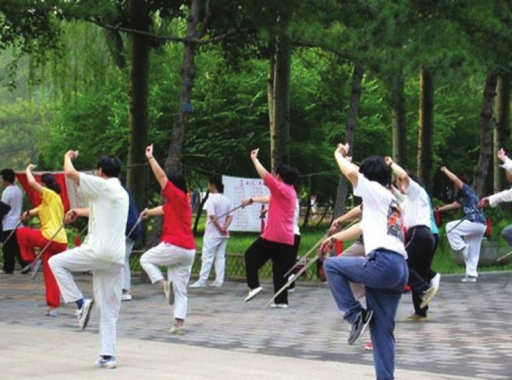Life style modifications: Tai chi for pain
I will speak in the future articles about pills, shots, infusions, and injections. With discussing Tai chi for pain, I am starting my rheumatological discussions with diet stuff and exercise stuff as they are general human questions. Also, patients with autoimmune or mechanical issues (i.e. Osteoarthritis) causing pains usually wants to exercise and do not know where to start. I found the relatively gentle concept of Tai chi helpful.
Disclaimer on my opinions on Tai chi for pain
Disclaimer: I kind of believe that there is always ancient wisdom that we gain through trial and error through generations. Why did I say that? I am biased towards older ancient arts due to that belief. I will try be objective. It seems to me, some how that tai chi movements, postures, and speed leads to enough dose of activity without extremely overloading our organ systems. At the point of writing this article, I don’t have the ability to evaluate particular trainers but I will leave that homework to you for now.
Tai chi for fibromyalgia
I will start with fibro as we do not have much good supplements or drugs for fibromyalgia. It seems from some clinical trials that Tai Chi has benefits. The rational of researchers that Tai Chi is not only a form of body movement but also awareness and, dare I say, mindfulness. This kind of follows the adage of “healthy body, healthy mind”. This concept is also seen in body building and fitness. Tai Chi interestingly is proven through a clinical trial. “Built with science” explained the idea that if you are thinking of muscle, you are exercising and feeling it, it gains more muscle mass.
With fibromyalgia the hypersensitive drive makes us feel everything in heightened ways, therefore I believe Tai Chi restores the balance. You might say, why not Yoga. I think Yoga is awesome too. However, from speaking of practitioner, it seems more intensive and require higher flexibility. If you can do Yoga, good for you. But I am talking to people in worse situations.
Tai chi for osteoarthritis
For osteoarthritis, mainly knees, it seems Tai Chi does provide benefit. I mean if you think about it, the stronger your muscles are and the better your balance, the more likely your knee and probably other body joint will be happier. But keep in mind when it was compared to traditional physical therapy the result was the same. This is logical.
Physical therapist spends ages understanding every crank and knot in muscle and joints balance. It is technically their science. As a Rheumatologist, I go to physical therapist for my back issue. God bless that physical therapist. Her examination is better than x-rays and MRIs. So, I would consider physical therapy also an ancient art, but I guess probably western rather than eastern.
Tai chi for Rheumatoid arthritis
Going to Rheumatoid arthritis. This is a bit disappointing but expected logically. Well at least we have pills, injections, infusions, and nutritional supplements for Rheumatoid arthritis. The issue with Rheumatoid arthritis that you are dealing with joint autoimmune attack.
Probably mindfulness is less an issue with Rheumatoid arthritis which is why tai chi probably does not work. I would not discourage Tai Chi. It seems low impact exercise but I would be careful with any exercise during disease activity or while your rheumatologist is trying to control the disease.
How did I reach my conclusions
The results on tai chi for pain, I am mentioning, are from a well-recognized scientific entity that mainly evaluates clinical trials called “Cochrane review”. I usually follow what is said there unless I have a unique expertise in a matter. I would extrapolate this result on other autoimmune arthritis such as psoriatic arthritis and ankylosing spondylitis.
Summary
As a summary, do not think I am telling you not to exercise and improve your muscles. I think you should. If you have fibromyalgia element into your pains, then Tai Chi and physical therapy are probably good. Also, if you have osteoarthritis, then Tai Chi seems good but physical therapy seems as good. If you have active autoimmune joint issues, probably do low impact exercise such as swimming or walking on flat surfaces till you work with your doc on controlling the autoimmune issue.
Resources
https://onlinelibrary.wiley.com/doi/pdf/10.1155/2013/502131
https://www.bmj.com/content/bmj/360/bmj.k851.full.pdf
https://www.ncbi.nlm.nih.gov/pmc/articles/PMC3023169
https://www.cochranelibrary.com/cdsr/doi/10.1002/14651858.CD004849.pub2/pdf/full

Current interventions in the management of knee osteoarthritis.
Bhatia D, Bejarano T, Novo M -Journal of pharmacy & bioallied sciences(2013)



